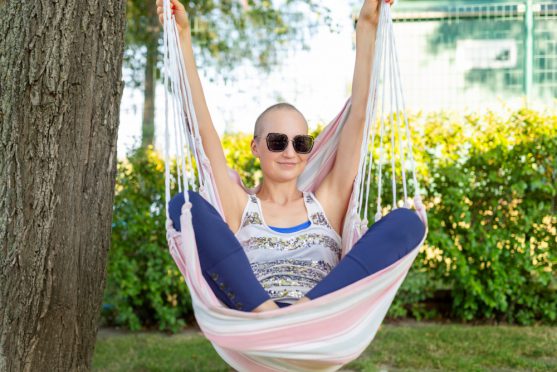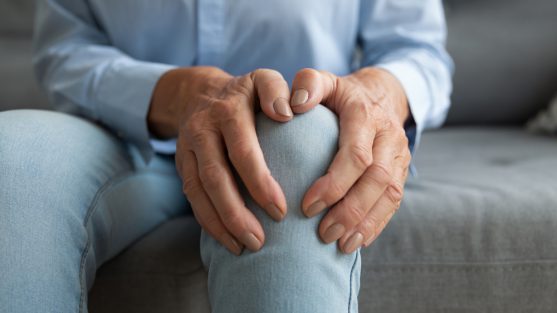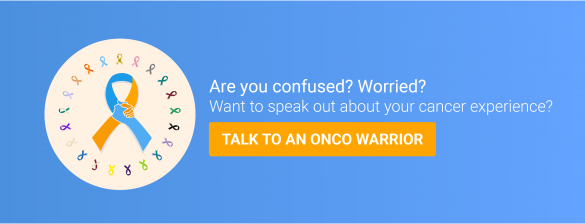Transition from active treatment to post-treatment recovery is critical to long-term health of a cancer survivor. Here we talk about the kind of lifestyle that is best suited to survivors post-treatment.
A cancer survivor is a person who has been diagnosed with cancer. Therefore, survivorship begins at the time of diagnosis and includes the periods of initial treatment with intent to cure, cancer-free survival, chronic or intermittent disease, and end of life care.
Cancer and its treatment does have a significant impact on one’s physical, psychological and emotional health.
The thought that you have completed a cancer treatment successfully, is a joy in its own sense. After all the emotionally and physically draining treatments and tests, you can now, finally, look forward to a life that you plan to live to its fullest.

Life after cancer can be enjoyable
As a cancer survivor, be informed, that life after cancer treatment may not be exactly what it was before the cancer occurred. So, there may be certain adjustments needed in your lifestyle to accommodate the physical, emotional, and mental changes that you have gone through, to help your life plans work to the best.
Most cancers can be successfully treated with the available treatment modalities, however, certain cancers still have a chance to recur. Studies showed that some cancers may reoccur in the first two years or so after treatment, which implies that you need to observe your body for any changes that might be a concern.
As your body is coping with the changes after treatment, you may develop some health issues which in turn affect the prognosis of cancer.
As a cancer survivor your ability to function and your quality of life may be significantly reduced because of preexisting medical conditions, the cancer itself, or side effects of cancer treatment, so it is essential to adapt to a lifestyle that would help in improving the quality of life.
So, can you enjoy your life after treatment without the risk of cancer recurrence and other health problems? Yes, of course, the key is to learn about the chronic health issues among cancer survivors and the things you can do to take charge of your overall health.
Chronic health issues among survivors
The health issues during the remission period may vary among patients based on the type of cancer they had, and the type of treatment received. Chronic health issues among cancer survivors include:
- Obesity: Obesity is associated with poor survival in breast, endometrial, prostate, pancreatic, colorectal, ovarian, and some hematologic malignancies. Hence it is important for cancer survivors to plan effective measures for weight management.
- Cardiovascular diseases (CVD): According to a new research published in the European Heart Journal, 1 in 10 cancer patients die from heart and blood vessel problems. Patients with breast, prostate, endometrial, or thyroid cancer are at a high risk of developing cardiovascular diseases during their cancer journey.
Mortality rates among cancer survivors due to CVD include 19% (bladder), 17% (larynx), 17% (prostate), 16% (womb), 14% (bowel) and 12% (breast) cancer patients. Early recognition and treatment of CVD might help to improve the cardiovascular risk profile.
- Diabetes: A study in JAMA Oncology showed that cancer increases the chances of developing type 2 diabetes (T2D) within the first 2 years after diagnosis and the risk increases throughout the follow-up period.
Another study showed that there is an increased risk for diabetes among childhood cancer survivors. Managing a healthy lifestyle can help in the prevention and management of diabetes and its related comorbidities.
- Bone loss and osteoporosis: Cancer patients who are actively receiving or have received cancer treatments are at high risk of developing osteoporosis. The risk is high among breast cancer survivors and it often affects bones in the hips, spine, and wrists.

Monitor your bone health after cancer
Some studies showed that treatments for childhood cancer also results in bone loss and it gets worse as the child grows. Routine bone density scans can help in early diagnosis. Taking a balanced diet and performing exercises can help maintain bone health.
- Sexual health issues: Cancer treatments including surgery, chemotherapy and radiation can result in emotional and physical changes that affect sexual desire and well-being. Prostate cancer treatments are associated with erectile dysfunction and sexual health problems in men, while treatments for gynaecological cancer cause sexual dysfunction among female cancer survivors.
It is important to seek medical support related to your sexual health when diagnosed with cancer or after undergoing treatments.
Lifestyle changes for cancer survivors
Both diet and physical activity can improve the quality of life and can minimize both disease and treatment-related side effects in cancer survivors.
There is increasing evidence linking lifestyle factors with cancer prognosis, and hence the patients are advised to improve their overall health during and after cancer treatments.
Healthy lifestyle can be achieved by eating a healthy diet, being physically active, managing mental health and avoiding smoking and drinking habits.
Healthy diet
Studies show that healthy eating habits among cancer survivors help to prevent cancer recurrence and other chronic diseases including heart disease and diabetes. Being overweight and obesity are clearly associated with increased risk of developing cancers.
Your diet should focus on maintaining a healthy body weight. The dietary guidelines emphasize plant-based eating for cancer survivors as these can reduce the overall risk of cancers.

Nuts contain good fats
Dietary guidelines for cancer survivors:
- Include a variety of vegetables, fruits, whole grains, low-fat dairy products.
- Limit those “extra” foods that have calories but few nutrients like cookies, white bread, sugary beverages, and fried foods.
- Good fats such as vegetable oils, nuts and avocado can add flavour, but do not contain more calories.
- Practice mindful eating as rushing through meals may lead to consuming more quantity too quickly.
- Consume healthy portions of probiotic and prebiotic foods.
- Avoid red meat and other processed meats. Choose skinless poultry and fish as your protein sources.
Physical fitness
There is strong evidence that regular and higher levels of physical activity can reduce the risk of cancer. Getting substantial exercise improves the immune system function and prevents obesity, which is a risk factor for many cancers.
Exercise recommendations should be tailored to the survivor’s capabilities.
Physical activity guidelines for cancer survivors recommend gradually increasing the amount of exercise day-by-day so that you can build your strength and endurance over time. One can start with low-impact exercises like walking, cycling, dancing or yoga that burn calories without putting much stress on your body. Overtime, you can switch to vigorous exercises like swimming, aerobics, jumping ropes, running, playing sports like football, basketball, etc.
Exercise can improve mood, boost self-confidence, reduce cancer-related fatigue, lower your risk of cardiovascular disease and diabetes.

Physical fitness is important after cancer
Always consult a physical therapist for personalized guidance and care. A customised exercise plan should be followed based on the pre-treatment physical activity of the patient, the type of cancer and stage of the disease, and the general condition of the patient.
Before starting a moderate to vigorous exercise program, it is mandatory to get a clearance from your physician.
Usually, recommended physical activity includes: 150 to 300 minutes of moderate aerobic activity and 75 to 100 minutes of vigorous aerobic activity per week. Also, include:
- Muscle strengthening activities every two weeks.
- Stretching/flexibility exercises before and after each work-out session.
Alcohol/tobacco
Studies show that smoking and alcohol consumption in cancer survivors are linked to an increased risk for chronic health conditions and premature death. Quitting smoking is the strongest predictor of survival in cancer patients who have ever smoked.
Read more about why you should quit smoking here.
For patients who cannot voluntarily quit smoking, effective treatment methods are recommended. Pharmacologic treatments along with supportive and cognitive behavioural therapies are provided for cancer patients or survivors to quit smoking.
In addition to the risk of cancer, alcohol intake increases the risk of cardiovascular disease, type II diabetes and other health issues.

Keep away from alcohol and tobacco
According to American Cancer Society, cancer survivors who choose to drink alcohol, must limit their consumption to not more than one drink per day for women and two drinks per day for men.
Stress management
The journey of cancer from diagnosis to treatment is an emotional rollercoaster. Moreover, the chance of cancer recurrence also creates stress and anxiety among the cancer survivors.
Lifestyle modification for cancer survivors promotes mental health and psychological well-being. You should avoid stress, overthinking, frustration etc, as these emotions can have a negative impact on cancer prognosis.

Return to a hobby you used to enjoy
Doctors recommend spending a minimum of 20 to 30 minutes daily for stress management practices. Tips that have been shown to be helpful for stress management in cancer survivors include:
- Practice relaxation techniques, such as guided imagery, meditation, and yoga.
- Spend some quality time with your friends and family.
- Get peaceful sleep for seven to eight hours.
- Take a break by revisiting your favourite hobbies.
Role of regular post treatment follow ups in cancer survivors
Follow-up care is essential for cancer survivors as it helps to identify the changes in the body, manage side effects of the treatment and monitor your overall health.
The primary goal of follow-up care is to check for recurrence or metastasis (spread) of cancer. Follow-up care differs for each patient depending on the type of cancer and treatment.
Follow-up care may include a regular medical check-up, which may include a physical exam, blood tests, and imaging tests. Some additional tests may be carried out based on your symptoms. In some cases, your doctor will refer you to other health professionals such as a dietician, psychologist or physiotherapist for effective lifestyle management.
In short
Lifestyle changes along with a positive attitude and sustained efforts are required to achieve your goals. Choose to live your life as fully as possible and maintain a healthy relationship with your friends and family. Always keep in mind that you are a cancer survivor and plan your life in such a way that you can lead a fulfilling life after cancer.


